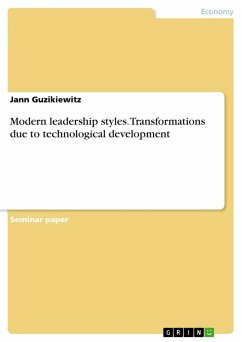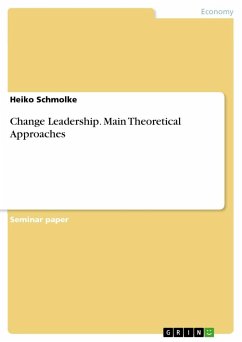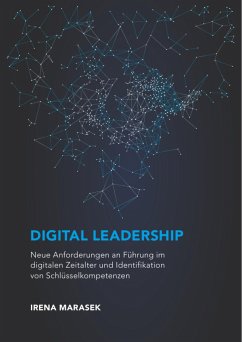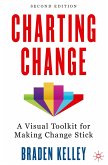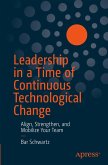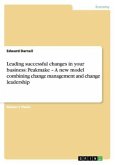Seminar paper from the year 2016 in the subject Business economics - Business Management, Corporate Governance, grade: 1,3, Buckinghamshire New University, language: English, abstract: This assignment will examine innovative change due to fast technological developments. It will analyze the possibilities how organisations can cope with such a transformation and give recommendations for action as a result.The assignment is divided into five main sections. First, it will consider a general definition for the terms change, innovation, and leadership. In this context, it will give explanations for CL and IL and emphasizes their growing importance for future change projects. Second, it will describe the need for change and the procedure itself, explaining change drivers and thereby focus the technological change. After that, it will give a review of Kotter and Lewin's change models and consider their future usability. It will then focus Leadership in the transformation context. Thereby the leader's role will be considered and the key position of a change agent as well as the suitable leadership styles. The fourth part compares two case studies, a successful and another unsuccessful change process. Finally, some conclusions will be drawn that results into recommendations for action.Today's organisations are facing the challenges of the 21st century. Globalization and radical transformation in structure, resources, and nature of expertise are leading to an increasing level of competition throughout all industries. McKinsey's business consultants analyzed that the average lifespan of an organisation in 1935 was about 90 years. In 2010, the average lifespan dropped to only 14 years. This depicts that the speed of change has increased and organisationsare struggling to keep up, especially when it comes to technological innovation surrounding their domain sectors.The changing framework is a challenge for both management and employees. Both parties need to adapt to a faster and more efficient response to variety of rapid changing tasks. To deal with this rapid change, terms like change leadership (CL) and innovation leadership (IL) have become more identified within organisations. By identifying the problem, organisation can begin to deal with it, leading to successful fast technological change and its acceptance from the stakeholders.
Hinweis: Dieser Artikel kann nur an eine deutsche Lieferadresse ausgeliefert werden.
Hinweis: Dieser Artikel kann nur an eine deutsche Lieferadresse ausgeliefert werden.

